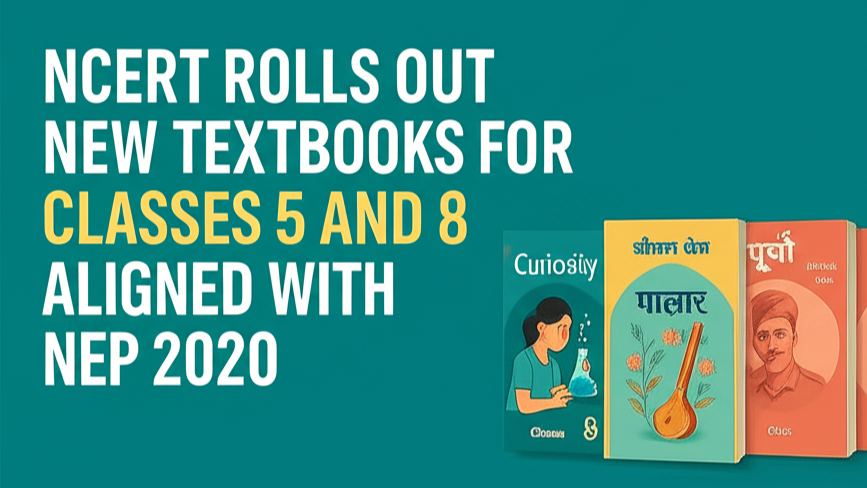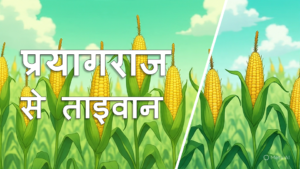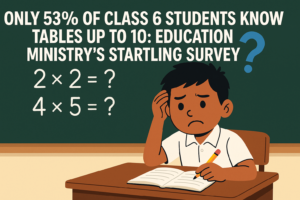The National Council of Educational Research and Training (NCERT) has introduced a new set of textbooks for Classes 5 and 8, aligning with the National Education Policy (NEP) 2020 and the National Curriculum Framework for School Education (NCF-SE) 2023. These textbooks aim to foster imagination, creativity, and conceptual clarity among students, marking a significant step in modernizing India’s school curriculum. The launch, announced on July 10, 2025, includes a variety of subjects with thoughtfully crafted content to engage young learners and reflect India’s rich cultural and intellectual heritage [1][2].
New Textbooks for Class 8
For Class 8, NCERT has released several new textbooks, each designed to encourage critical thinking and a deeper connection to Indian heritage [1][3]:
- Curiosity (Science Textbook): This textbook emphasizes experiential learning and scientific inquiry, encouraging students to explore concepts through hands-on activities and real-world applications [1].
- Kaushal Bodh (Vocational Education Textbook): Focused on skill development, this book introduces students to practical knowledge and vocational skills, aligning with NEP 2020’s emphasis on preparing students for diverse career paths [1].
- Malhar (Hindi Textbook): Crafted to spark linguistic creativity, this textbook integrates engaging narratives and activities to enhance language skills [1].
- Poorvi (English Textbook): The revised English textbook, titled Poorvi (meaning “eastern” and named after a classical music raga), features stories of Indian icons such as Major Somnath Sharma, India’s first Param Vir Chakra awardee, Vergterase Kurien, the pioneer of the White Revolution, and Bibha Chowdhuri, India’s first female particle physicist. Written by Kirti Kapur, a professor of English at NCERT, Poorvi includes five thematic units focusing on courage, kindness, critical thinking, service, curiosity, and perseverance. These units comprise stories, poems, conversations, and narrative pieces to inspire students [3].
New Textbooks for Class 5
For Class 5, NCERT has introduced textbooks like Veena (Hindi) and Santoor (English), which focus on activity-based learning and cultural rootedness. These textbooks aim to make learning more engaging by incorporating Indian musical and cultural elements into their titles and content, aligning with NEP 2020’s vision of a rooted yet modern education system [1].
Alignment with NEP 2020 and NCF-SE 2023
The new textbooks are part of a broader curriculum overhaul initiated under NEP 2020, which envisions a “5+3+3+4” pedagogical structure, covering foundational, preparatory, middle, and secondary stages of education. The NCF-SE 2023 emphasizes competency-based education, moving away from rote learning to promote critical thinking, creativity, and practical application. The textbooks incorporate these principles by focusing on experiential learning, Indian heritage, and modern pedagogical approaches. For instance, Curiosity and Kaushal Bodh aim to develop skills and conceptual understanding, while Poorvi highlights Indian role models to inspire students [1][2].
NCERT has also ensured that these textbooks will be available in digital formats, reflecting the growing demand for digital learning post-COVID-19. This move aligns with the Education Ministry’s goal to make educational resources accessible to all, with plans to update textbooks regularly to keep them relevant [2].
Challenges and Controversies
The launch of these textbooks has not been without challenges. As of July 2025, the new textbooks for Classes 5 and 8 are not yet available in the market, either online or offline, though they are expected to be accessible soon. In the interim, NCERT has introduced bridge programs for Classes 5 and 8 to help students and teachers transition to the new curriculum. These programs include subject-wise activities to familiarize students with the updated pedagogical approaches [1][2].
Additionally, the decision to assign Hindi names to English-medium textbooks, such as Poorvi for Class 8 and Santoor for Class 5, has sparked controversy. Critics, particularly from non-Hindi-speaking states like Kerala and Tamil Nadu, argue that this move disregards India’s linguistic diversity and may impose Hindi-centric terminology. Kerala’s General Education Minister V. Sivankutty has voiced concerns, stating that such naming conventions could undermine the sensitivity to linguistic plurality. NCERT, however, defends the titles, asserting that names like Poorvi and Ganita Prakash (Mathematics) draw from India’s cultural and mathematical heritage to foster curiosity and national pride [2].
Broader Context and Future Plans
The release of these textbooks follows the introduction of new materials for Classes 1, 2, 3, and 6 in previous years, with Classes 4 and 7 also receiving updated textbooks in 2025. The NCERT’s efforts are part of a phased rollout to align all school textbooks with NEP 2020 by the 2024-25 academic session. The Education Ministry has emphasized annual reviews to ensure textbooks remain dynamic and relevant, with input from state curriculum frameworks and regional consultations [2].
The new textbooks also reflect a shift toward inclusivity and cultural representation. For example, Poorvi emphasizes stories of Indian heroes to instill values of courage and perseverance, aiming to connect students with their cultural roots while promoting critical thinking [3]. However, the inclusion of Hindi names for English-medium textbooks has drawn criticism for potentially sidelining linguistic diversity, with ongoing debates about balancing national pride with regional identities [2].
Final Thoughts
The launch of NCERT’s new textbooks for Classes 5 and 8 marks a significant milestone in the implementation of NEP 2020 and NCF-SE 2023. By focusing on creativity, Indian heritage, and competency-based learning, these textbooks aim to transform education in India. While challenges like delayed availability and linguistic controversies persist, the initiative reflects a commitment to modernizing education while staying rooted in India’s cultural ethos. As NCERT continues to roll out updated materials, the focus remains on creating an inclusive, dynamic, and inspiring learning environment for students across the country.
References
[1] NDTV Education. (2025, July 10). NCERT Launches New Textbooks Based on New Education Policy 2020. – https://www.ndtv.com/education/ncert-launches-new-textbooks-based-on-new-education-policy-2020-8853601
[2] Times Now News. (2025, July 10). NCERT Launches New Textbooks Based on NEP 2020. –https://www.timesnownews.com/education/ncert-launches-new-textbooks-based-on-nep-2020-article-152245844
[3] NDTV Education. (2025, July 10). NCERT Unveils Revised Class 8 English Textbook ‘Poorvi’ with Focus on Indian Icons. – https://www.ndtv.com/education/ncert-unveils-revised-class-8-english-textbook-poorvi-with-focus-on-indian-icons-8852962








